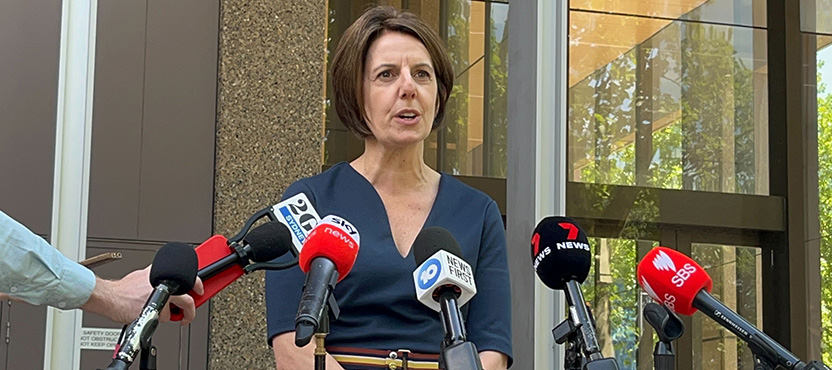Press conference transcript: Kathleen Folbigg's convictions quashed
- 3 mins read


Please note: this transcript has been slightly edited for clarity.
Anna-Maria Arabia:
The Australian Academy of Science welcomes today's decision by the Court of Criminal Appeal to squash the convictions of Kathleen Folbigg. But make no mistake, that without law reform, these sort of miscarriages of justice will continue.
Although, there was evidence in 2019, new scientific evidence, basic scientific principles were not adhered to from the time of trial. There were at least six occasions on which this occurred from 2003. There was no medical or pathological evidence for the smothering of Kathleen Folbigg's children. Yet she was convicted of smothering them.
Circumstantial evidence was given more weight than scientific evidence. There was pathological and medical evidence that explained the death of the children at the time of the trial.
No trauma, journalling, or grief experts were brought before any legal proceedings until 2022.
The International Calmodulin Registry was inappropriately and wrongly interpreted, and that evidence was admitted into the inquiry in 2019. There is ample evidence that scientific principles have not been upheld in this case since her trial in 2003.
We must absolutely use this occasion in Australia to bring about law reform. Firstly, there is no jurisdiction in Australia that has a reliability standard. You and I and our liberty rely on reliable evidence being admitted into courts of law. There is no way to check that in Australia at the moment. That is a first form of law reform.
A Criminal Case Review Commission or some sort of independent post-appeal mechanism must be introduced in Australia so miscarriages of this kind do not happen again.
And finally, the Australian Academy of Science acted as an independent scientific adviser to this case. That was rare, unique ... but it ought not to be.
We must find mechanisms to enable independent experts from the right disciplines, wherever they reside, to be brought before our courts so that they can be cross-examined by all parties.
Without law reform, we will continue to see miscarriages of justice across our country and across the globe. Thank you.
Journalist:
[paraphrased] What more would you like to see specifically from the New South Wales justice system?
Anna-Maria Arabia:
The New South Wales justice system, the New South Wales Government, must absolutely, as a matter of urgency, look at their current justice system and ask whether it is delivering justice to the people of New South Wales. I would go further and say that every jurisdiction in Australia needs to ask the same question.
There is significant law reform that needs to happen in Australia if we are to create a more science-sensitive legal system. It does not exist at the moment, unreliable evidence is routinely admitted into courts. And there is no post-review appeals mechanism to deal with mistakes when they are made.
Is New South Wales behind other jurisdictions on this, or are they all behind?
All jurisdictions need to look at the legal system but here in New South Wales, we've just seen the quashing of the convictions of Kathleen Folbigg after 20 years in jail.
If a case of this magnitude does not trigger law reform, I'm not sure what does. It is time for Australia to review its legal system to ensure it can be more scientifically informed, particularly given the pace of change of scientific discovery and technological advances.
Thank you.
More information
Read the Academy's media release on the decision by the NSW Court of Criminal Appeal to quash Kathleen Folbigg’s convictions.





